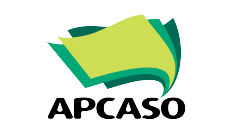by Lesley Bola, Key Population Advocacy Consortium – PNG
Civil Society plays a big role in supporting the advocacy, prevention, and treatment of TB & HIV programmes in Papua New Guinea. The civil society and key population-led organizations in the country extends its role to support a weak health system, filling in gaps where health system cannot support, and complementing the health system in supporting its clients to access lifesaving TB and HIV services. In spite of this, one critical area that civil society engages in the PNG TB response is the role of advocacy. While it is clear that civil society organizations in the country identify advocacy as an important role that we play, broader issues that complicate the TB epidemic in the country, which includes stigma and discrimination, unemployment, poverty, and lack of education, hinder many civil society and community members to engage in the advocacy work. This is further complicated by the gender inequality issues that women face in our country.
Our organization, the Key Population Advocacy Consortium – PNG, through the support of APCASO under the Stop TB Partnership’s Challenge Facility for Civil Society 9 grant, “Right to Breathe” implemented a project titled “Community-Led Advocacy Program on TB”. The overall goal of our project was to strengthen the work of TB in the area of advocacy and capacity-building in human rights working with those infected and affected by TB. Our project had three aims:
- To conduct TB and Human Rights trainings for 11 participants from National Capital District (NCD), Morobe and Eastern Highlands so they are equipped with knowledge and skills to impart back into the communities.
- To develop a data collection system from clients of TB to ensure they access TB clinics freely without any form of stigma and discrimination.
- To strengthen the health system in three high burden TB provinces (NCD, Morobe and Eastern Highlands) through advocacy building collaboration amongst the national and provincial TB program and other CS partners.
From February to June 2021, we conducted six (6) trainings across 3 provinces on key topics particularly around human rights and TB, as well as community-led monitoring. Around 80 TB community volunteers have been trained and empowered, with some of them engaged further to develop the community-based monitoring tool for TB in the 3 provinces. Along with this, we also developed a series of targeted TB messages aimed at influencing leaders, politicians along with the participants.
Further consultations with TB clients & TB survivors to bring awareness and ensure that the tools are appropriate, and this was further presented and introduced to TB treatment support workers, National Department of Health, UNAIDS, Global Fund implementers, and KP Advocacy Consortium members.
With this project, access to TB services have increased in the country through many ways. Through the trainings that we conducted, people affected with TB were encouraged to get tested for TB through community-led networks that the trainings were able to link together. The posters that our participants developed during our trainings have also been posted on our Facebook group, and this has encouraged people to get tested for TB and other health-related issues. Some of our participants were also empowered to refer clients to get treated, including those who were lost to follow-up. Lastly, the grant has strengthened the working relationships between those working for HIV to connect and learn about TB. Being in a country with the highest TB/HIV burden in the world, this project has helped us strengthen our community to address both epidemics and support our community members to get tested and treated for both HIV and TB.
This project has also brought together persons affected by TB to have an open forum with health workers, which is a first of its kind in the country. In the discussions that we conducted, our communities shared their issues or challenges with the health workers, which resulted in very constructive feedback. This has helped health workers understand the issues shared by communities when accessing the clinics.
We were also enabled to establish a community-led monitoring (CLM) system in the three provinces, which will hold health service providers accountable so that they will provide better service and equitable access to commodities to our clients. The community will also be able to have data to support any advocacy programs. For example, one clinic ran out of TB drugs and the communities were too afraid to air their voice. Now, the communities had been empowered to know their rights and accessibility to medication at all times.
With what the “Community-Led Advocacy Program on TB” project has started, we are hopeful that the quality of TB services and TB/HIV services will improve over time. We thank APCASO through the support of the Stop TB Partnership that we were given this opportunity to implement this project. We look forward to continuing this project so that we can change how TB is being addressed in our country.


